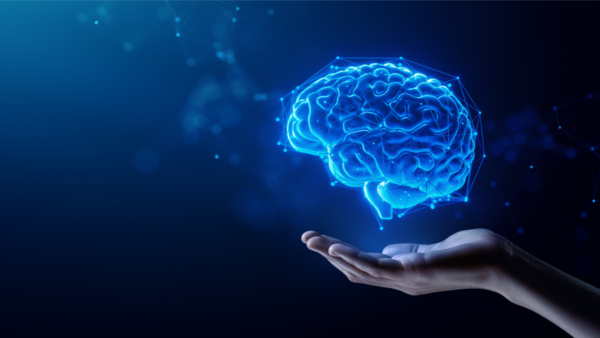Artificial Intelligence in Healthcare: From Hype to Real-World Impact
Published on July 2025

Artificial intelligence (AI) is no longer the new kid in the schoolyard. It has become a major part of everyday life, streamlining routine tasks and automating processes across the board. It has also become deeply ingrained within the healthcare sector, where its capabilities are constantly evolving to meet real-life needs and healthcare demands. However, there is still significant potential for further development and application within medicine, which the industry must be prepared to embrace.
Benefits and Current Applications
AI-driven technologies are increasingly relied upon in healthcare today. In particular, they are used to support the diagnosis, monitoring, management, and treatment of a wide range of health conditions. They can also be used to more accurately predict future risk of disease.
In this field, researchers are exploring AI’s role in diagnosing and managing rare diseases. For example, a projecti by the BioMedical Machine Learning Team at UNSW’s Biomedical Engineering School, working in collaboration with NSW Health and Sydney Children’s Hospital, is using AI-driven technology to analyse genetic and phenotypic characteristics to enable faster and earlier detection of genetic disorders. If successful, the technology could reduce diagnostic times by up to 80% and lower healthcare costs by as much as 70% for cardiovascular diseases.
In addition, AI technology can be used to automate and streamline professional workflows, reducing the need for manual intervention and minimising the risk of human error. As a result, AI in healthcare applications benefits individuals, organisations and healthcare sector as a whole.ii There is also growing discussion around that AI potential to improve healthcare accessibility for more people,iii which may have positive implications for public health in the future.
For instance, AI tools like Cortechs.ai NeuroQuant, available through Getz Healthcare in Australia and New Zealand, are used in neuroimaging to provide faster and more consistent brain MRI quantification. With access to a dynamic brain atlas, such software plays a growing role in AI for neuro applications, helping identify structural brain differences that can support the assessment of neurodegenerative, neurodevelopmental, and traumatic conditions like MS, Alzheimer’s disease, epilepsy, and concussion. It also provides objective, volumetric, and colour-coded images of brain structures for easy interpretation by professionals.
Implications for the Future
Key to the future of AI in healthcare is ensuring its safe and responsible use. While a time may come when AI’s role expands further, at present, AI-driven technologies in healthcare are tools designed to support clinical decision-making.iv They provide guidance or a second opinion but do not replace the expertise, training, or judgment of healthcare professionals. As the field advances, attention is turning to data management and protection. There is also a need to closely monitor the actual development of technology, ensuring that it remains unbiased and fully controllable. With these and other criteria met, AI holds significant promise for the future of healthcare.
iAli, Omar & Abdelbaki, Wiem & Shrestha, Anup & Elbaşı, Ersin & Alryalat, Mohammad & Dwivedi, Yogesh. (2023). A systematic literature review of artificial intelligence in the healthcare sector: Benefits, challenges, methodologies, and functionalities. Journal of Innovation & Knowledge. 8. 100333. 10.1016/j.jik.2023.100333.
ii Ali, Omar & Abdelbaki, Wiem & Shrestha, Anup & Elbaşı, Ersin & Alryalat, Mohammad & Dwivedi, Yogesh. (2023). A systematic literature review of artificial intelligence in the healthcare sector: Benefits, challenges, methodologies, and functionalities. Journal of Innovation & Knowledge. 8. 100333. 10.1016/j.jik.2023.100333.
iii Exemplars of Artificial Intelligence and Machine Learning in Healthcare. Improving the safety, quality, efficiency and accessibility of Australia’s healthcare system. July 2020. The Australian E-Health Research Centre. Queensland Government. CSIRO. https://aehrc.csiro.au/wp-content/uploads/2021/10/Exemplars-AI-in-Health-July-2020.pdf [Accessed June 2025]
iv TGA Artificial Intelligence (AI) and medical device software, May 2024
Getz Healthcare is proud to be recognized as the leading distributor of medical equipment, devices and consumables, in Asia Pacific.
Our full-service distribution capabilities provide end-to-end representation of our business partners’ products, while delivering comprehensive service and solutions to our customers in all the countries we serve. Learn more
All product information listed on this site are for healthcare professionals only. Descriptions and specifications of the products listed on this site are provided by the manufacturer.